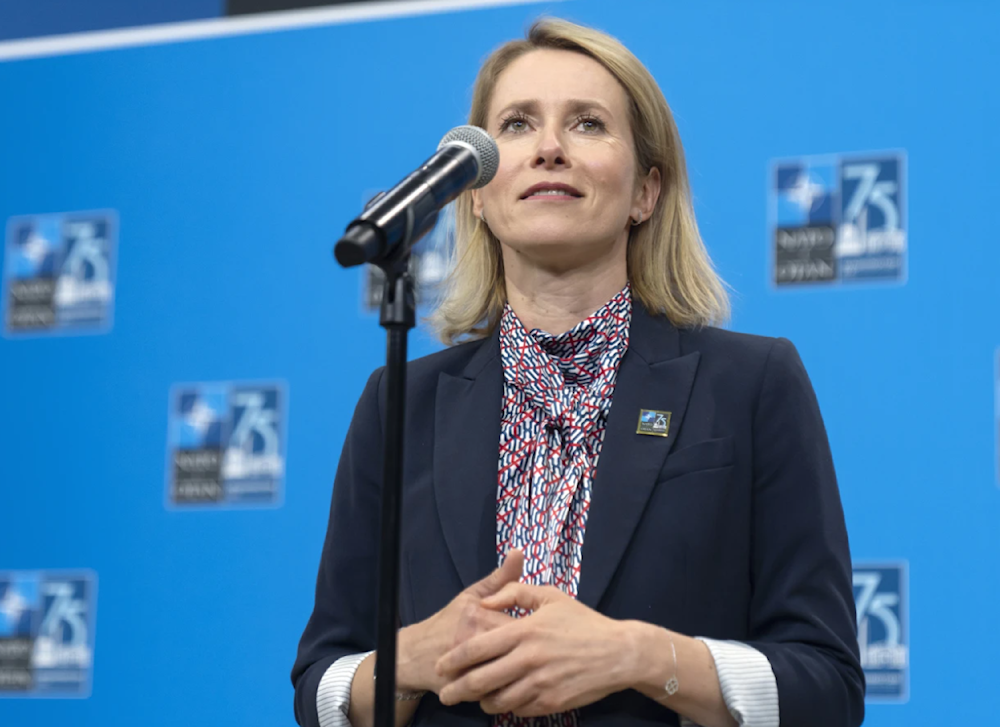Too early to remove sanctions on Syria, says EU official
According to Kaja Kallas, Syria's new temporary authorities have shown "positive signals", but they weren't enough.
-

Estonia's Prime Minister Kaja Kallas speaks during her arrival at the NATO summit in Washington on July 11, 2024. (AP)
The European Union's new foreign policy chief Kaja Kallas stated that sanctions on Syria would not be lifted until its new leadership ensures that minorities are not mistreated and women's rights are maintained under a cohesive administration that rejects religious extremism.
EU's top diplomat stated that an EU foreign ministers meeting in Brussels on Monday, which included Syria on the agenda, will not consider boosting financial help to the nation beyond what the EU now provides through United Nations organizations.
In an interview for Reuters, she cited "steps in the right direction" as a prerequisite to consider sanctions relief for the country.
"One of the questions is whether we are able to, in the future, look at the adaptation of the sanctions regime. But this clearly is not the question of today, but rather in the future where we have seen that the steps go in the right direction," Kallas expressed.
While the EU has imposed strict sanctions on Syria, Hay'at Tahrir al-Sham, the organization that spearheaded the ouster of Syrian President Bashar al-Assad, has also been sanctioned for years, which complicated matters for the international community.
According to Kallas, the EU is already the largest contributor of humanitarian aid to Syria.
She was speaking after attending a summit in Jordan on Saturday that brought together regional and Western powers to explore the future of Syria.
"Syria faces a hopeful but uncertain future," said Kallas, who is on her first trip to the Middle East in her new role. "We need to discuss what more can we do. But as I say, it can't come as a blank cheque," she noted.
Syria's new administration has shown "positive signals", but they weren't enough, she noted, adding that they will be judged by actions rather than words.
"What everybody is looking at is, of course, the treatment of women and girls also, which shows the society and how it goes, how the institutions are built up, so that there is a government that takes on board everybody," she pointed out.

 2 Min Read
2 Min Read








